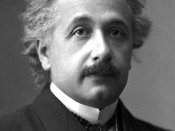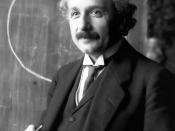The edifices of thought are built not solely on the millions of facts we have inside our head but also on the ideas and knowledge of other people. The thinking process progresses not merely by absorbing facts and pondering over them. It also involves being exposed to the thoughts of others and trying to find a rationale in their views.
While sharing ideas with those who have similar opinions can be immensely satisfying, much can be learned by exposure to divergent views. Differences in thought often lead to new ways of interpretation of facts, experimentation and innovation.
Throughout history, great men have achieved their greatness through individuality and originality of thought. For instance, ancient science believed that the Universe was based on certain axioms - the Earth is the center of the Universe and the planets move around it in circles. Copernicus first suggested that one of the most fundamental axioms of the last 3500 years was mistaken: the Sun, not the Earth, was the center of the Universe.
Later, Brahe brought forth the theory that the planets move in elliptical orbits. Galileo shattered another of the axioms of ancient Greek physics that a given weight of some heavy material falls faster than the same weight of some light material. Einstein, by his theory of relativity, changed our ideas about time and space.
Darwin, in his book On the Origin of Species, stimulated a major reevaluation of biology despite intense criticism from scientists and theologians for going against the view that God created the Universe, as stated in the Bible.
Had society ignored these radically different ideas, science would not have progressed as it has.
Not only do we learn from examining diverse opinions, but also our minds are freed of orthodoxy and prejudice. Recognizing the merits of...


